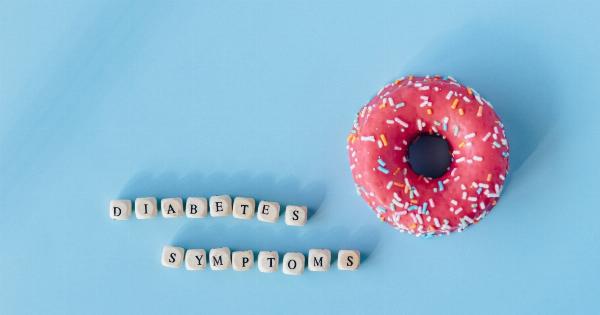Tachypnea refers to a fast respiratory rate, usually higher than the normal range in adults, which is 12-20 breaths per minute. Tachypnea can occur due to various reasons and can affect people of all ages, particularly newborns and children.
Causes of Tachypnea
Below are some of the possible causes of tachypnea:.
1. Respiratory Disorders
Tachypnea can be due to various respiratory disorders, such as:.
1.1. Asthma
Asthma is a chronic respiratory condition that affects the airways and makes breathing difficult and uncomfortable. Tachypnea can occur during an asthma attack due to the narrowing of the airways and the increased effort required to breathe.
1.2. Bronchitis
Bronchitis is an inflammation of the bronchial tubes, which carry air to and from the lungs. Tachypnea can occur when the bronchial tubes become inflamed and constricted, making it harder to breathe.
1.3. Pneumonia
Pneumonia is a lung infection that can cause fever, cough, and difficulty breathing. Tachypnea can occur as the body tries to fight the infection and clear the lungs.
1.4. Pulmonary Edema
Pulmonary edema refers to the accumulation of fluid in the lungs, which can make it challenging to breathe. Tachypnea can occur when the lungs cannot clear the excess fluid, causing shortness of breath.
2. Cardiac Disorders
Tachypnea can also be due to various cardiac disorders, such as:.
2.1. Heart Failure
Heart failure is a chronic condition that occurs when the heart cannot pump enough blood to meet the body’s needs. Tachypnea can occur as the body tries to compensate for the reduced blood flow, causing shortness of breath.
2.2. Arrhythmia
Arrhythmia refers to an irregular heart rhythm, which can cause tachypnea due to the decreased blood flow to the lungs and other parts of the body.
3. Metabolic Disorders
Tachypnea can also be due to various metabolic disorders, such as:.
3.1. Diabetic Ketoacidosis
Diabetic ketoacidosis is a severe complication of diabetes, which occurs when the body cannot produce enough insulin to process glucose and starts breaking down fat for energy.
Tachypnea can occur due to the increased production of acid in the blood, causing shortness of breath.
3.2. Hyperthyroidism
Hyperthyroidism is a condition that occurs when the thyroid gland produces too much thyroid hormone, causing various symptoms, including tachypnea.
4. Neurological Disorders
Tachypnea can also be due to various neurological disorders, such as:.
4.1. Seizures
Seizures can affect the respiratory system and cause tachypnea, especially in children.
4.2. Head Injuries
Head injuries can also cause tachypnea due to the damage to the brainstem and the respiratory centers.
5. Other Causes
Other possible causes of tachypnea include:.
5.1. Anemia
Anemia refers to a low red cell blood count, which can cause shortness of breath and tachypnea.
5.2. Anxiety
Anxiety can cause tachypnea due to the increased sympathetic tone and the release of stress hormones.
Conclusion
Tachypnea can occur due to various reasons and can affect people of all ages, particularly newborns and children. Finding out the underlying cause of tachypnea is essential to determine the appropriate treatment and prevent complications.





























